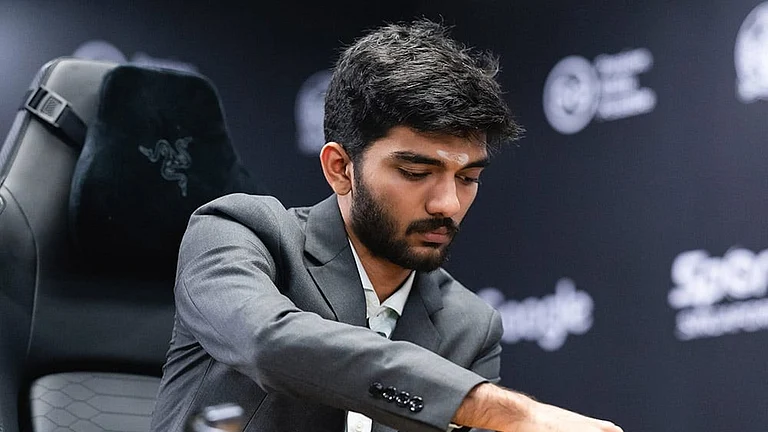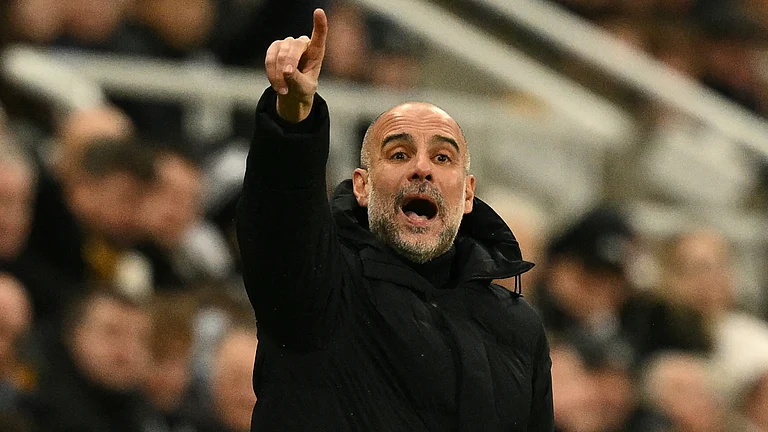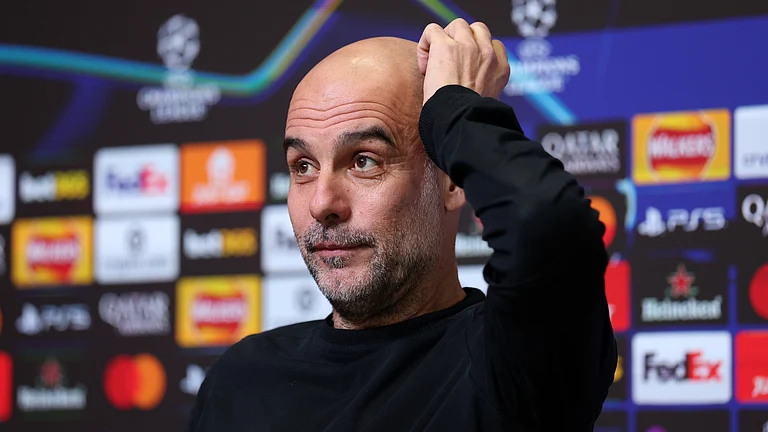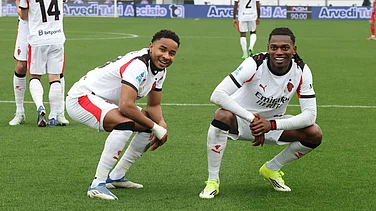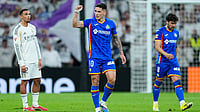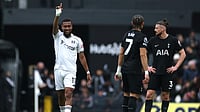Pep Guardiola has admitted he needed to learn to control his emotions more effectively before guiding Manchester City to the treble last season. (More Football News)
A new club-produced documentary which will screen on Netflix from Tuesday goes behind on the scenes of City’s historic season, and shows the message Guardiola gave to his players at half-time during the Champions League final in Istanbul, when the match against Inter Milan was still goalless.
Guardiola is seen trying to settle the nerves of his players, reassuring them they can improve in the second half, before they went on to win 1-0 through Rodri’s 68th minute goal.
“You’re exceptional players, playing the Champions League final,” Guardiola tells them. “What you feel is normal, yes. But we don’t give up. Go, go, go. That’s why we are here. We adjust one or two things and we’ll be much more effective. Calm, guys, calm. Keep going, we’ll find momentum.”
“You’re exceptional players, playing the Champions League final,” Guardiola tells them. “What you feel is normal, yes. But we don’t give up. Go, go, go. That’s why we are here. We adjust one or two things and we’ll be much more effective. Calm, guys, calm. Keep going, we’ll find momentum.”
Speaking in an interview filmed for the documentary, which is called ‘Together: Treble Winners’, Guardiola contrasted that message with the half-time team talk he gave his side during the 2021 Champions League final against Chelsea.
They had just fallen behind to Kai Havertz’s 42nd minute goal and went on to lose 1-0.
“People are human beings, they have the desire to do well, to achieve it, win it, to lift it…
“I remember the final against Chelsea at half-time I was more aggressive with some players and it didn’t work…
“In the finals, there is not one player who doesn’t want to win it and do it well. And when that moment came by, OK guys, we have 45 minutes, maybe extra time, stick with what we have. I have to adjust something, we do it. Come on, let’s go.
“I control my emotions much better than when I was younger as a manager.”
The documentary also includes Kyle Walker’s now famous speech in the dressing room before kick-off. The England defender had been left out of Guardiola’s starting line-up for the match, and implored those taking the field to deliver for those on the sidelines.

“I love every single one of you,” said Walker, now City’s captain. “Come and make my dream come true. Please, I beg you. Right, come on boys.”
The six-episode documentary series charts City’s season from the moment of Erling Haaland’s medical ahead of his arrival from Borussia Dortmund through to their historic night in Istanbul and the celebrations that followed.
The issue of the 115 charges laid against the club by the Premier League in February 2023 for alleged breaches of financial rules are dealt with briefly, but without new material, using archive footage from Guardiola’s press conference at the time
The lowest point of City’s season came in January, when they lost back-to-back games against Southampton and Manchester United.

The abject 2-0 Carabao Cup loss to the Saints was later seen as a turning point and Guardiola’s post-match team talk with his players is telling as he demanded an explanation from them for their poor display.
“Tell me,” he said. “Do you think it’s normal the way you performed? Something happens and everyone’s head is down. There is no one to do something. Do you think it’s normal, what we have done, for this club?
“Do you think it’s normal for the (fans) that travel, who don’t have money to pay for the heater at home and they travel, to come here, to follow us – do you think it’s normal to perform in this way?
“Wow. My team is not like that. We’ll be in trouble. I don’t accept that.”



